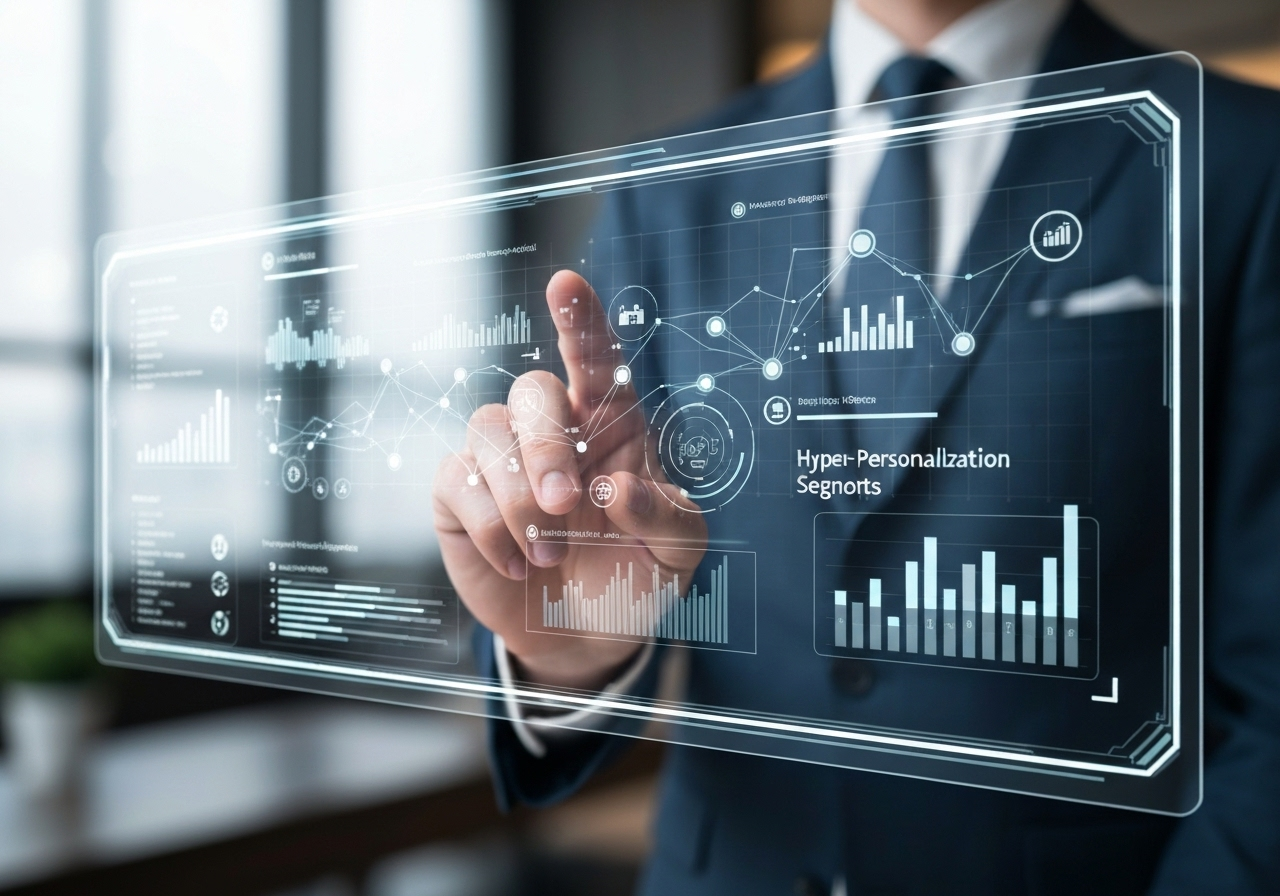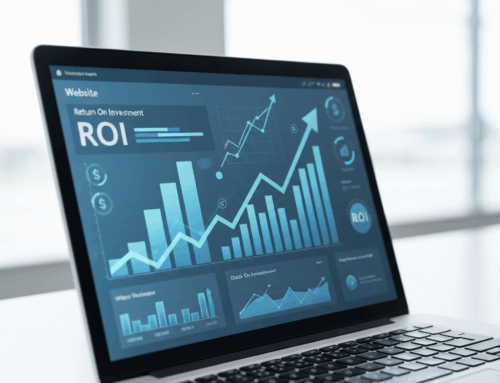The Strategic Imperative: Why AI is Reshaping Marketing for Businesses
In 2025, the integration of artificial intelligence (AI) is no longer a futuristic concept but a strategic imperative for businesses aiming to thrive in a rapidly evolving digital landscape. The realm of AI for marketing campaigns 2025 signifies a profound shift, moving beyond mere automation to redefine how brands connect with their audiences. According to SEO.com’s statistics, the AI in the marketing industry is projected to be worth $47.32 billion in 2025, a significant jump from $12.05 billion in 2020. This explosive growth underscores AI’s widespread adoption, with 88% of digital marketers already leveraging AI in their daily tasks.
AI’s strategic takeover means it’s becoming a critical partner in high-level planning and decision-making. Businesses are seeing AI systems predict future market trends with unprecedented accuracy, simulate campaign outcomes, and optimize resource allocation in real-time. This profound shift necessitates that marketers embrace AI not just for efficiency, but for delivering meaningful, personalized experiences at scale, as highlighted by WordStream. The data shows a clear trend: companies that effectively integrate AI gain a substantial competitive advantage, streamlining processes and enhancing creativity.
Key Applications of AI for Marketing Campaigns 2025
The applications of AI in marketing are diverse and continually expanding, offering businesses powerful tools to refine their strategies and engage customers more effectively. Here are some key areas where AI is making a significant impact:
- Hyper-Personalization: AI models are increasingly sophisticated at processing vast amounts of consumer behavior data, enabling real-time adjustments to customer experiences. Tools like Dynamic Yield allow businesses to customize website content and offers based on individual preferences, leading to improved conversion rates. This moves beyond basic personalization to predictive anticipation, creating truly individualized experiences at scale, as discussed by NoGood.io.
- AI-Powered Content Creation: Generative AI tools are maturing, facilitating the creation of written, visual, and even audio content. While human oversight remains crucial for quality and brand alignment, AI can handle much of the heavy lifting, accelerating content production and enabling marketers to launch campaigns with greater ease. Our own insights at Idea Forge Studios demonstrate how AI can assist in mastering digital marketing with AI in content creation.
- Predictive Analytics: This application utilizes AI and machine learning to analyze historical data and forecast future outcomes, helping marketers anticipate customer behavior and optimize budget allocation. It’s becoming a non-negotiable necessity for staying competitive, permeating nearly every aspect of business operation.
- AI-Optimized Ad Campaigns: AI is deeply embedded in paid media platforms, automating bidding, optimizing conversions, and supporting targeting and creative elements. This simplifies campaign creation and allows for continuous testing and refinement, although it may reduce manual oversight in some areas.
- AI Agents: These sophisticated systems act as both assistants and colleagues, capable of continuously processing information across multiple channels and providing real-time, data-driven insights. They can automate tasks, manage customer relationships, and even adjust bidding strategies across advertising platforms, significantly enhancing efficiency.
- Specialized AI Technologies: Beyond generative AI, specialized systems are emerging for tasks like computer vision for brand monitoring, emotion AI for customer experience, and voice AI for sonic branding, offering deeper insights and more nuanced interactions. For a comprehensive look at specific tools, Marketer Milk provides a detailed list of AI marketing tools that are being leveraged today.
Optimizing Digital Presence: AI’s Role in Web Development and E-commerce
AI’s influence extends deeply into the foundational aspects of a business’s digital footprint: web development and e-commerce. For businesses like Idea Forge Studios, AI is a cornerstone of modern digital solutions, transforming how websites are built and how online stores operate. AI significantly enhances the customer experience, streamlines business processes, and facilitates seamless omnichannel interactions.
In e-commerce, AI enables:
- Tailored Recommendations: By analyzing purchase history and customer behavior, AI provides highly personalized product suggestions, driving engagement and sales. This aligns with our focus on AI use cases for online stores to boost sales and customer experience.
- Dynamic Pricing: AI algorithms can adjust prices in real-time based on demand, competition, and customer behavior, maximizing profitability.
- Visual Search and Voice Commerce: AI allows customers to find products by uploading images or using voice commands, offering intuitive and convenient shopping experiences.
- Customer Segmentation: AI groups customers based on data patterns, enabling highly targeted marketing campaigns.
- Automated Content: AI can generate product descriptions and other content, saving time and ensuring consistency.
- Sentiment Analysis: Analyzing reviews and feedback with AI helps understand market sentiment, leading to improved products and services.
The Digital Marketing Institute emphasizes that e-commerce interfaces in 2025 will rapidly advance with AI, enabling a highly personalized and efficient shopping journey. Furthermore, AI-driven insights are crucial for strategic AI-driven e-commerce website development for growth, ensuring that platforms are not just visually appealing but also intelligently optimized for performance.
From Data to Decisions: Leveraging AI for Predictive Insights and Personalization
At its core, AI revolutionizes how businesses interpret and act upon data, transforming raw information into actionable insights and driving unprecedented levels of personalization. This capability is paramount for successful AI for marketing campaigns 2025.
The power of predictive analytics, supercharged by AI, allows marketers to anticipate customer behavior with remarkable accuracy. By processing vast datasets from multiple sources, AI systems can forecast market trends, identify emerging opportunities, and predict shifts in consumer sentiment that would be nearly impossible for human analysts to spot manually. As highlighted by NoGood.io, AI-powered systems operate in real-time, enabling dynamic strategies that adapt as conditions change, taking into account factors like weather patterns, local events, and historical purchasing data.
Hyper-personalization, driven by AI, moves beyond simple customization to create truly individualized experiences at scale. This involves analyzing intricate details of customer interactions, demographics, and behaviors to deliver perfectly timed offers and highly relevant content. With AI, businesses can ensure that every touchpoint, from website visits to mobile notifications, is optimized for individual preferences. The shift towards first-party data, combined with AI-driven audience segmentation, is becoming increasingly critical as privacy regulations tighten, allowing marketers to understand and engage audiences effectively without relying on third-party cookies, a trend detailed by WordStream. This strategic use of data and AI empowers businesses to maximize website potential by transforming data into a powerful engine for growth.
Maximizing Returns: Measuring ROI and Navigating AI Implementation Challenges
The promise of AI in marketing is not just about efficiency; it’s about delivering tangible returns on investment (ROI). Businesses are witnessing significant improvements in productivity, personalization, and campaign performance directly attributable to AI adoption. HubSpot’s report on AI trends for marketers indicates that marketers are turning AI into measurable outcomes by boosting productivity, improving personalization, and accelerating performance across campaigns with clear, trackable returns. Key metrics often show increased productivity, time saved across teams, better overall role performance, and improved ROI of projects.
However, successful AI implementation is not without its challenges. Businesses must proactively address potential hurdles to fully leverage AI’s benefits:
- Data Privacy and Ethical Concerns: As AI systems rely heavily on vast amounts of consumer data, concerns about data collection, storage, and usage are paramount. Companies must ensure transparency in their data practices and comply with evolving regulations like GDPR to protect consumer privacy. ContentGrip highlights that around 40% of marketers cite data privacy concerns as a top barrier to adopting AI tools.
- Accuracy and Bias: AI algorithms can inadvertently perpetuate biases present in their training data, leading to skewed or discriminatory marketing outcomes. Regular audits of AI systems and the use of diverse, representative datasets are crucial to mitigate these issues. SurveyMonkey’s research indicates that 31% of marketers have accuracy and quality concerns about AI.
- Cost and Complexity: The investment in advanced AI tools and the need for specialized skills can be a deterrent for some businesses. However, the long-term cost savings and competitive advantages often outweigh initial expenditures.
- AI Fatigue and Upskilling: The rapid pace of AI advancement can lead to “AI fatigue” among marketers. It’s essential for leaders to identify tasks where AI truly adds value, rather than creating additional work. Furthermore, a significant challenge is the need for upskilling the workforce. While AI won’t replace human creativity, it will reshape roles, demanding that marketers learn to collaborate with and refine AI outputs.
Despite these challenges, the consensus is clear: the benefits of AI in marketing, such as automating repetitive tasks and driving faster content creation, far outweigh the disadvantages, provided businesses adopt a responsible and strategic approach. This proactive stance ensures that AI serves as a powerful tool to amplify human capabilities, contributing to measurable growth and efficiency. For example, our work in boosting SEO with AI-powered automated blogging demonstrates how AI can streamline efforts while maintaining quality.
Preparing Your Business for the AI-Powered Marketing Future
The future of marketing is undeniably intertwined with AI. To ensure your business is not just keeping pace but leading the way in AI for marketing campaigns 2025, proactive preparation is essential. This involves a strategic mindset shift and tangible steps to integrate AI effectively within your operations.
Here’s how businesses can prepare:
- Evaluate Current AI Capabilities: Begin by assessing your existing use of AI. Are all employees leveraging AI to its full potential? Identify areas where AI tools are already in use and evaluate their effectiveness. This audit will reveal gaps and opportunities for further integration.
- Identify Areas for Maximum Value: Determine which marketing challenges AI can most effectively address. This could range from automating routine tasks and enhancing customer segmentation to personalizing content at scale or optimizing ad placements. Prioritize initiatives that promise the greatest impact on your business objectives.
- Develop a Clear Implementation Strategy: A coherent plan is crucial. This involves selecting the right AI tools that align with your specific goals and ensuring they can seamlessly integrate with your existing technology stack. Consider the scope, budget, and ease of integration for each tool.
- Invest in Team Training and Upskilling: The most critical component of AI adoption is empowering your workforce. Provide comprehensive training and resources to ensure your marketing team understands how to use AI tools effectively. This isn’t just about technical proficiency but also about cultivating “human” skills like collaborative problem-solving, which remain vital as AI takes over more repetitive tasks. Continuous learning, perhaps through specialized courses or industry experts, will be key to refining AI skills and staying ahead of the curve.
- Prioritize Ethical AI Practices: As AI becomes more pervasive, it’s crucial to establish internal ethics committees and maintain transparency in data use. Address concerns around data privacy and algorithmic bias proactively to build and maintain customer trust.
- Experiment with New Formats: The AI-powered future will bring synthetic media, augmented reality overlays, and dynamic personalization to the forefront. Businesses should experiment with these new formats to understand what resonates most with their audience.
Ultimately, preparing for the AI-powered marketing future means embracing AI as a co-creative partner. It’s about building systems, teams, and playbooks that strategically leverage AI while staying rooted in what makes brands meaningful: empathy, authentic voice, and cultural context. By adopting this forward-thinking approach, businesses can unlock unparalleled growth and maintain a competitive edge in the dynamic digital landscape. Our expertise in internet marketing, including advanced SEO and content strategies, positions Idea Forge Studios to guide businesses through this transformative journey.
Ready to transform your digital presence? If you’re looking to schedule a discussion, request a quote, or simply initiate contact to address your web development, e-commerce, or digital marketing needs, get in touch with Idea Forge Studios today. Let’s discuss how our expertise can solve your business challenges and help you take the next step.








Get Social